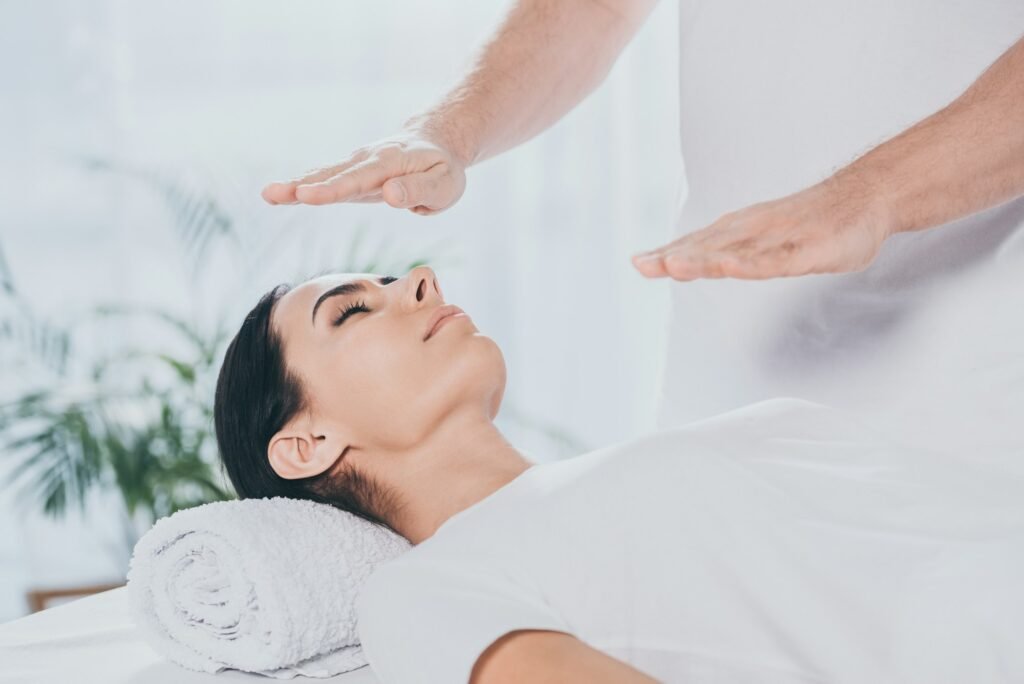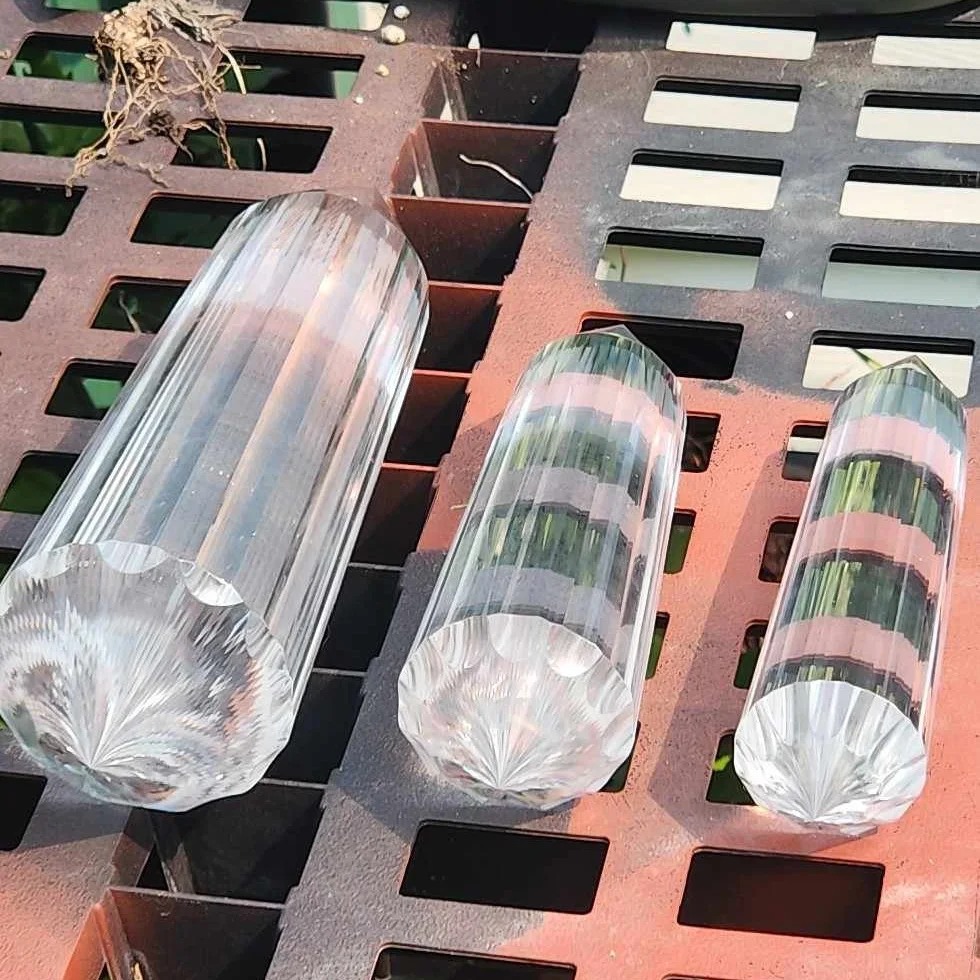Reiki

Reiki
Reiki is a Japanese energy healing modality that has become increasingly popular in holistic wellness. At its core, Reiki involves channeling universal life force energy, known as “ki” in Japanese. Practitioners act as conduits, gently placing their hands on or near a recipient’s body to facilitate the flow of this energy, fostering relaxation, balance, and an overall sense of well-being.
What is Reiki?
Reiki is grounded in the philosophy that disruptions to the flow of life force energy within the body can contribute to emotional distress, physical ailments, and imbalances. Reiki practitioners work to restore the harmonious flow of this energy, supporting the body’s innate healing abilities. Unlike massage, Reiki generally involves light touch or no touch at all, making it a non-invasive and deeply relaxing experience.
How Can Reiki Help You?
Reiki offers a multifaceted approach to promoting holistic wellness. Individuals may seek Reiki to experience:
- Stress Reduction and Relaxation: Reiki is known for its ability to induce a state of deep relaxation, helping to alleviate stress and its associated physical and emotional effects.
- Pain Management: Reiki may offer relief from chronic pain or discomfort, serving as a complementary therapy for various conditions.
- Emotional Healing: Reiki can facilitate the release of emotional blockages or traumas, promoting emotional well-being and inner peace.
- Accelerated Healing: By supporting overall balance and relaxation, Reiki may contribute to accelerated recovery from injuries or illnesses.
- Enhanced Spiritual Connection: Reiki can deepen an individual’s spiritual awareness and connection to their inner self.
What Is Reiki Good For?
Reiki is considered a versatile healing modality that may be beneficial for a wide range of concerns, including:
- Anxiety and depression
- Stress-related conditions
- Sleep disturbances
- Chronic pain
- Supporting recovery from illness or surgery
- Enhancing personal growth and spiritual exploration
Benefits of Reiki
Embracing Reiki can offer numerous advantages for overall health and well-being:
- Promotes Deep Relaxation: Reiki helps to activate the body’s relaxation response, triggering the parasympathetic nervous system, which counteracts the effects of the fight-or-flight stress response. By slowing the heart rate, lowering blood pressure, and easing muscle tension, Reiki promotes a state of deep relaxation that can significantly reduce stress and anxiety.
- Reduces Stress and Anxiety: The deep relaxation induced by Reiki can have a profound impact on stress and anxiety levels. As the body enters a relaxed state, the mind follows suit, allowing worries and anxieties to melt away. Reiki can also help to improve sleep quality, which is essential for managing stress and promoting overall well-being.
- Supports Pain Management: While Reiki is not a replacement for medical treatment, it can serve as a valuable complementary therapy for pain management. Studies suggest that Reiki may help to reduce pain perception and improve pain tolerance. This can be beneficial for individuals experiencing chronic pain, pain associated with injuries or surgeries, or headaches.
- Enhances Natural Healing: Reiki is believed to support the body’s natural healing processes by promoting relaxation, reducing inflammation, and improving circulation. This holistic approach can contribute to faster healing times from injuries or illnesses, and may also strengthen the immune system, making the body more resilient to future health challenges.
- Boosts Self-Awareness: Reiki can cultivate a deeper sense of connection with oneself. During a Reiki session, individuals often experience a heightened sense of awareness of their body’s sensations and energy flow. This can lead to a deeper understanding of one’s emotional and physical needs, fostering self-acceptance and inner peace. Reiki can also be a catalyst for personal growth, as individuals gain insights into their patterns and behaviors, and explore their spiritual connection.
What to Expect from Reiki with a Practitioner
A typical Reiki session unfolds in a tranquil and comfortable setting:
- Consultation: The practitioner will discuss your reasons for seeking Reiki, your current well-being, and any specific concerns.
- Relaxation: You’ll be invited to lie down or sit comfortably, fully clothed.
- Energy Work The practitioner will gently place their hands on or slightly above various positions on your body, holding each position for several minutes.
- Concluding the Session: You’ll have time to rest and integrate the experience before discussing any observations or insights with the practitioner.
Similar Modalities to Reiki
Other healing modalities that share similarities with Reiki include:
- Healing Touch: A biofield therapy focusing on restoring energy balance and promoting healing.
- Therapeutic Touch: A practice involving the practitioner moving their hands over a client’s body to influence their energy field.
- Qigong: Ancient Chinese practice combining movement, meditation, and breathwork to cultivate and balance energy flow.
Final Thoughts
Reiki offers a gentle and accessible approach to holistic wellness. Whether you’re seeking stress relief, seeking support for a health condition, or simply desiring a deeper connection with yourself, Reiki can be a valuable tool on your healing journey. If you haven an open mind about energy work and the potential benefits of complementary therapies, consider exploring Reiki with a qualified practitioner.
Scientific References
- Jain, S., & Mills, P. J. (2010). Biofield therapies: Helpful or full of hype? A best evidence synthesis. International Journal of Behavioral Medicine, 17(1), 1-16. https://doi.org/10.1007/s12529-009-9062-4
- Lee, M. S., Pittler, M. H., & Ernst, E. (2008). Effects of Reiki in clinical practice: a systematic review of randomized clinical trials. International Journal of Clinical Practice, 62(6), 947-954. https://doi.org/10.1111/j.1742-1241.2008.01729.x
- Shore, A. G. (2004). Long-term effects of energetic healing on symptoms of psychological depression and self-perceived stress. Alternative Therapies in Health and Medicine, 10(3), 42-48.
Recommended Reading
- Libby Barnett and Maggie Chambers (1996). Reiki Energy Medicine: Bringing Healing Touch into Home, Hospital, and Hospice. Healing Arts Press.
- Frans Stiene and Fransje Stiene (2006). Reiki: The Ultimate Guide. Lotus Press.
- William Lee Rand (2005). Reiki: The Healing Touch. Vision Publications.
FAQ: Reiki
Is Reiki a religion?
Reiki itself is not a religion. It is a spiritual practice focused on energy healing that is compatible with a variety of belief systems
How does Reiki work?
While the exact mechanisms behind Reiki are not fully understood, it’s believed to work by channeling universal life force energy to promote relaxation, reduce stress, and support the body’s natural healing abilities.
Can anyone learn Reiki?
Yes, Reiki can be learned by anyone interested. Reiki training is offered at various levels, from introductory workshops to in-depth master-level certifications.
How many Reiki sessions are needed?
The number of Reiki sessions needed varies depending on individual needs and goals. Some people experience benefits after a single session, while others may prefer a series of sessions for ongoing support.
What should I do to prepare for a Reiki session?
To get the most out of your Reiki session, it’s recommended to dress comfortably, avoid heavy meals prior to the session, and come with an open mind.




















